
Find Help
More Items From Ergsy search
-

What are the potential complications of appendicitis?
Relevance: 100%
-
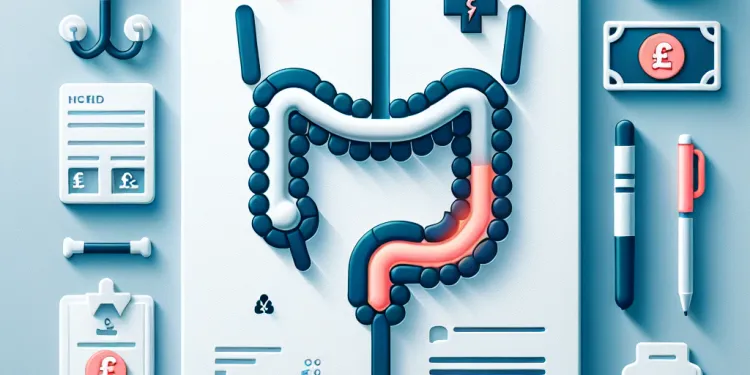
What is Appendicitis?
Relevance: 62%
-
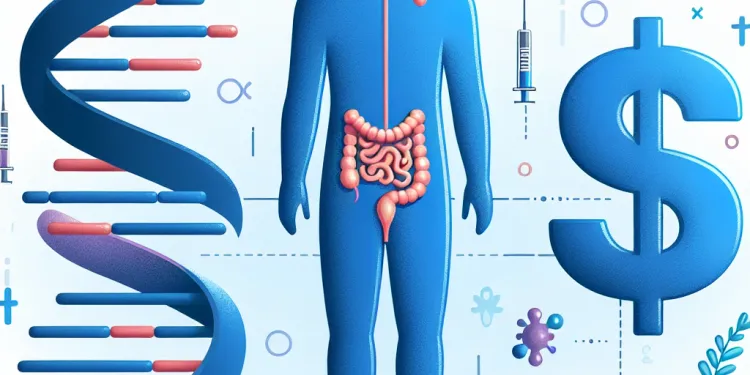
Is appendicitis hereditary?
Relevance: 61%
-

What is the treatment for appendicitis?
Relevance: 59%
-
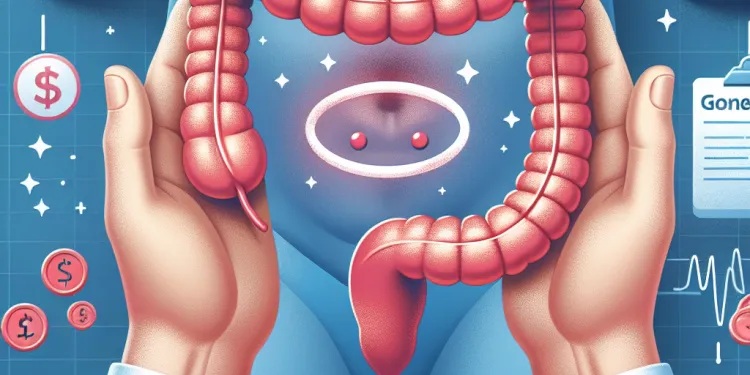
What happens if appendicitis is left untreated?
Relevance: 59%
-

What causes appendicitis?
Relevance: 58%
-

Can appendicitis go away on its own?
Relevance: 56%
-
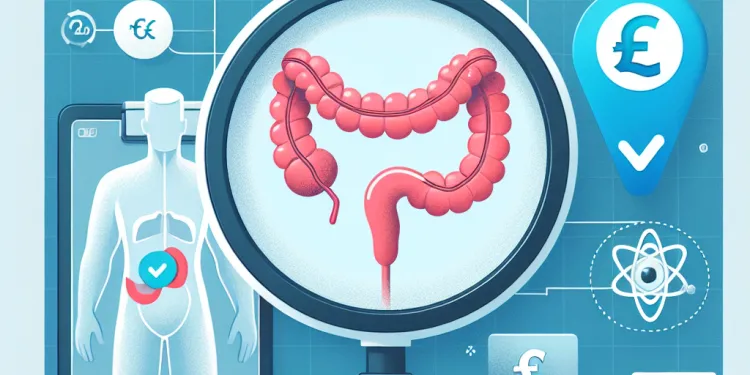
How is appendicitis diagnosed?
Relevance: 56%
-
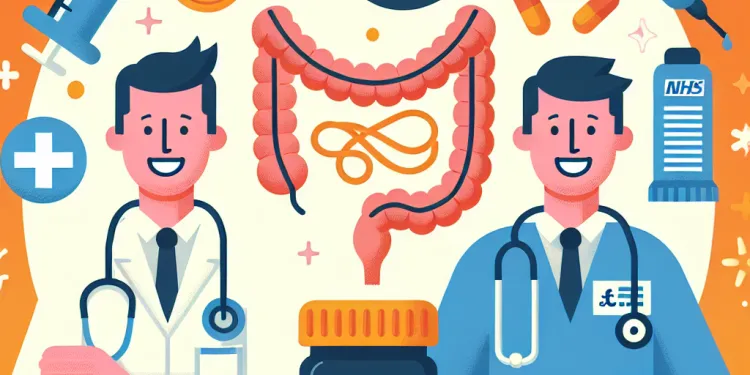
Can appendicitis be treated with antibiotics?
Relevance: 55%
-
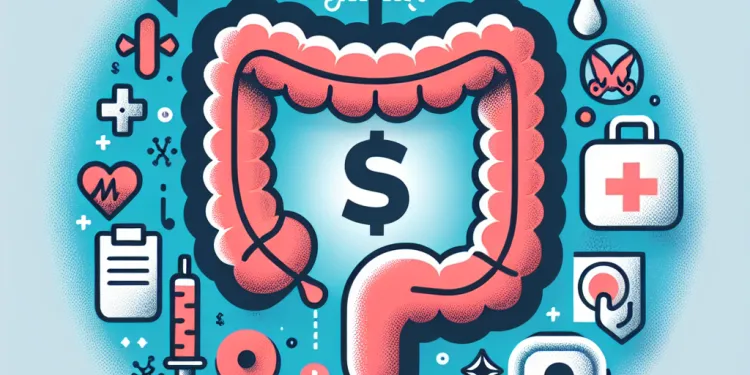
What are the common symptoms of appendicitis?
Relevance: 52%
-

What is the likelihood of needing surgery for suspected appendicitis?
Relevance: 52%
-
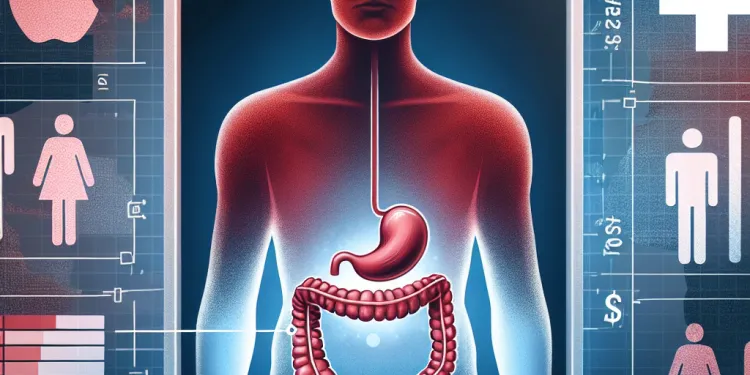
Is appendicitis common in any particular age group?
Relevance: 51%
-

How soon should you see a doctor if you suspect appendicitis?
Relevance: 51%
-
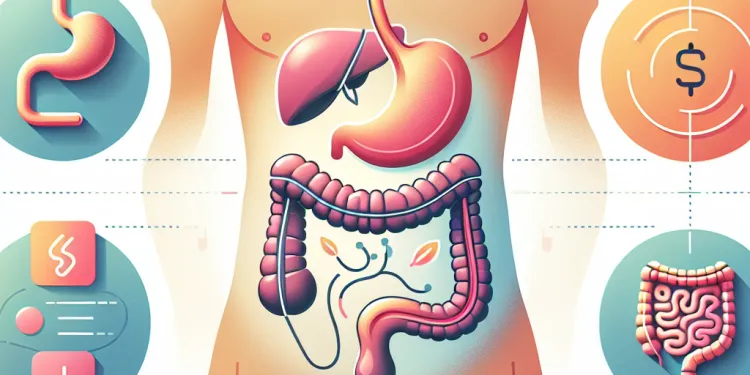
How is appendicitis different from other causes of abdominal pain?
Relevance: 51%
-

Can diet or lifestyle changes prevent appendicitis?
Relevance: 49%
-
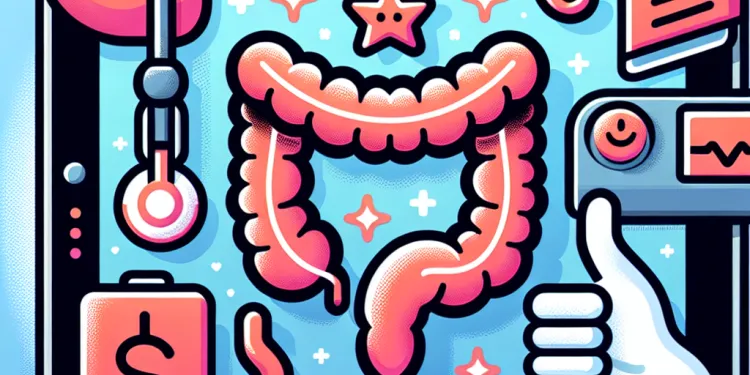
Can appendicitis occur more than once?
Relevance: 48%
-

Where is the pain located when you have appendicitis?
Relevance: 48%
-

What are potential complications of nettle rash?
Relevance: 48%
-

What are the complications of chickenpox?
Relevance: 34%
-

Are there any complications associated with shingles?
Relevance: 34%
-

Are there any complications associated with shingles?
Relevance: 32%
-

Can measles cause complications?
Relevance: 32%
-
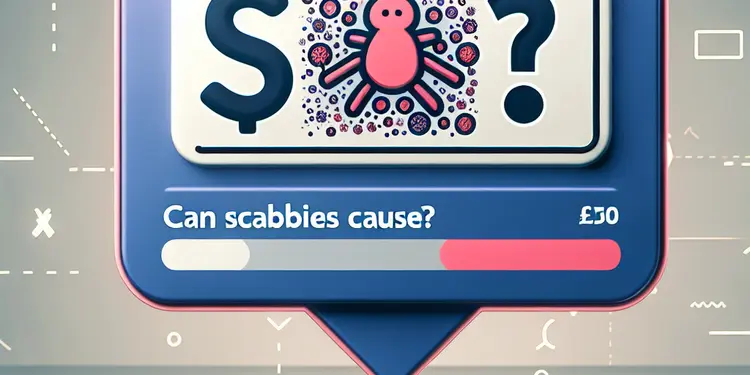
Can scabies cause complications?
Relevance: 32%
-

Can meningitis cause long-term complications?
Relevance: 31%
-

Can flesh-eating disease cause long-term complications?
Relevance: 30%
-

Are there any complications associated with Crohn's disease?
Relevance: 30%
-

What are the complications of sickle cell disease?
Relevance: 29%
-
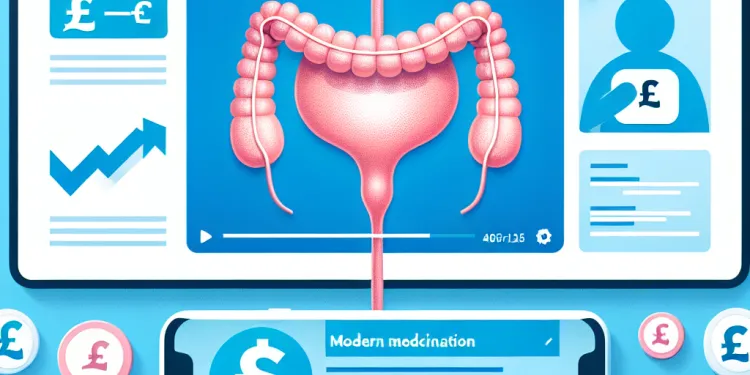
Can you live without an appendix?
Relevance: 29%
-

Can Nipah Virus cause neurological complications?
Relevance: 29%
-

What complications are associated with Type 2 Diabetes?
Relevance: 29%
-

What complications can arise from measles?
Relevance: 29%
-

Are there any complications associated with untreated BPH?
Relevance: 29%
-

Who is most at risk for complications from H3N2?
Relevance: 28%
-

What complications can arise from untreated hypotony?
Relevance: 27%
-

What are the potential benefits of CBD?
Relevance: 26%
-

What is the potential for addiction with ketamine?
Relevance: 25%
-

What are some complications associated with H3N2?
Relevance: 25%
-

What are potentially exempt transfers (PETs)?
Relevance: 23%
-

What are the potential benefits of the US rejoining WHO?
Relevance: 22%
-

Can gonorrhoea cause complications if left untreated?
Relevance: 22%
Understanding Appendicitis
Appendicitis is a medical condition characterised by the inflammation of the appendix, a small, pouch-like organ attached to the large intestine. It commonly presents with abdominal pain, nausea, and fever. If not treated promptly, appendicitis can lead to severe complications, which can be life-threatening.
Perforation of the Appendix
One of the most severe complications of untreated appendicitis is the perforation or rupture of the appendix. When the appendix bursts, it releases bacteria into the abdominal cavity, leading to a serious condition known as peritonitis. Peritonitis requires immediate medical attention and usually involves an emergency surgical procedure to clean the abdominal cavity and remove the ruptured appendix.
Abscess Formation
In some cases, instead of perforating, the appendix may form an abscess. An abscess is a collection of pus that occurs when the body's immune system tries to contain the infection. While an abscess is less immediately dangerous than full rupture, it still requires medical intervention. Treatment generally involves antibiotics and, in some cases, surgical drainage of the abscess.
Sepsis
Sepsis is a potentially life-threatening condition that occurs when the body's response to infection causes widespread inflammation. When appendicitis leads to peritonitis or an untreated infection spreads, the risk of developing sepsis increases. Sepsis can lead to organ failure and requires aggressive treatment, often involving antibiotics and intensive care support.
Intestinal Obstruction
Appendicitis can sometimes lead to an obstruction of the intestines. This occurs if the inflammation of the appendix causes the intestines to become blocked or kinked. Intestinal obstruction can result in severe pain and requires surgical intervention to resolve and prevent further complications.
Chronic Appendicitis
While less common, there is a form known as chronic appendicitis where inflammation of the appendix is less severe but persists over a long period. This can lead to recurring abdominal pain and can significantly impact the quality of life. Surgical removal of the appendix is usually recommended to resolve symptoms.
Complications in Pregnancy
Pregnant women who develop appendicitis face additional risks. If the appendix ruptures, it can lead to premature labour or even miscarriage. Diagnosis can be more challenging during pregnancy due to the displacement of abdominal organs, making prompt treatment even more critical.
Conclusion
Timely diagnosis and treatment of appendicitis are crucial to prevent these complications. Surgical removal of the appendix, or appendicectomy, is the most common and effective treatment. Awareness of the potential complications underscores the importance of seeking medical advice if appendicitis is suspected.
What is Appendicitis?
Appendicitis happens when a small organ called the appendix gets swollen. The appendix is next to the large intestine. If you have appendicitis, you might feel belly pain, feel like throwing up, and have a fever. If not treated, it can become very serious and dangerous.
Appendix Bursting
One bad problem from appendicitis is when the appendix bursts. This means it breaks open. If it bursts, germs can spread inside the belly. This is called peritonitis and is very serious. It needs fast medical help and usually surgery to clean the area and remove the appendix.
Pus Build-up
Sometimes, the appendix doesn't burst but makes a pocket of pus. This is called an abscess. Pus is a thick liquid the body makes to fight infection. An abscess needs medical care too. Doctors might use medicine or surgery to fix it.
Blood Infection
If germs spread in the body, it can cause a bad infection called sepsis. Sepsis is very dangerous. If appendicitis is not treated, it can lead to sepsis, which needs strong medicine and hospital care.
Blocked Intestines
Appendicitis can block the intestines. This can cause a lot of pain and needs surgery to fix it. A blockage stops food from passing through.
Long-lasting Appendicitis
Sometimes, appendicitis isn't very strong but lasts a long time. This is called chronic appendicitis. It can make your belly hurt often. Doctors usually take out the appendix to stop the pain.
Problems in Pregnancy
If a pregnant woman has appendicitis, it can cause more problems. If the appendix bursts, it can lead to early birth or losing the baby. It might be harder to find appendicitis in pregnant women, so quick treatment is very important.
Important to Remember
Seeing a doctor quickly can stop these problems. The best way to treat appendicitis is by surgery to take out the appendix. Knowing about these problems helps you understand why it is important to get help if you might have appendicitis.
Frequently Asked Questions
What are the general complications of untreated appendicitis?
Untreated appendicitis can lead to serious complications such as a ruptured appendix, peritonitis (infection of the abdominal lining), and sepsis (a life-threatening response to infection).
How does a ruptured appendix complicate appendicitis?
A ruptured appendix can spread infection throughout the abdominal cavity, leading to peritonitis and potentially sepsis, both of which are medical emergencies.
What is peritonitis and how is it related to appendicitis?
Peritonitis is inflammation of the peritoneum, the tissue lining the abdomen. It can occur if the appendix bursts, allowing bacteria and inflammation to spread.
Can appendicitis cause an abdominal abscess?
Yes, if the appendix ruptures, it can lead to the formation of an abscess, a pocket of pus caused by infection.
What are the symptoms of an abscess due to appendicitis?
Symptoms may include abdominal pain, localized swelling, fever, and a general sense of feeling unwell.
How does sepsis develop from appendicitis?
If the appendix bursts and infection spreads throughout the abdomen and bloodstream, the body may develop a severe response called sepsis.
Is bowel obstruction a complication of appendicitis?
Yes, especially if appendicitis leads to a perforated appendix, inflammation and scarring can cause bowel obstruction.
Can appendicitis lead to long-term digestive issues?
In some cases, surgical intervention or complications like bowel obstruction may lead to long-term digestive problems.
What is the risk of appendicitis during pregnancy?
Appendicitis during pregnancy can pose risks to both the mother and the baby, including preterm labor if untreated.
How significant is the risk of infection following appendectomy?
The risk is generally low, but surgical site infections can occur and are typically managed with antibiotics.
Can children experience different complications from appendicitis than adults?
Children can be at higher risk for perforation due to delayed diagnosis, which can lead to severe complications faster.
What role does an appendicolith play in appendicitis complications?
An appendicolith is a calcified deposit that can obstruct the appendix and contribute to its rupture.
How does delaying treatment of appendicitis increase complications?
Delays allow the appendix to swell, potentially leading to perforation, increased infection risk, and more complex surgical interventions.
Can appendicitis cause complications in the urinary system?
Yes, an inflamed appendix can press against or infect nearby urinary organs, causing symptoms similar to a urinary tract infection.
What complications can arise from misdiagnosis of appendicitis?
Misdiagnosis can lead to progression to rupture or peritonitis, as well as unnecessary surgeries if mistaken for other conditions.
What is the outcome of appendicitis that leads to necrosis?
Necrosis means tissue death, which occurs if blood supply is cut off, often resulting in rupture and severe infection.
How is mesenteric adenitis linked to appendicitis in terms of complications?
Mesenteric adenitis can mimic appendicitis symptoms and complicate diagnosis, potentially delaying correct treatment.
Are there complications related to the removal of a healthy appendix?
While generally rare, removing a healthy appendix after misdiagnosis can result in unnecessary surgical risks and complications.
Can certain populations experience different rates of appendicitis complications?
Yes, populations with limited access to healthcare might experience higher rates of complications due to delays in treatment.
What factors increase the likelihood of appendicitis complications?
Factors include age (children and elderly), delay in treatment, and presence of comorbid conditions that may affect immune response.
What can happen if appendicitis is not treated?
If appendicitis is not treated, it can cause big problems:
- The appendix can burst. This is called a "burst appendix." It can make you very sick.
- If the appendix bursts, germs can spread in the belly. This is called an "infection."
- The infection in the belly is called "peritonitis." It is very serious and needs a doctor.
- You can get a thing called an "abscess." This is a painful lump full of germs.
It's important to see a doctor quickly if you have belly pain. The doctor can help find out if it is appendicitis and treat it.
Sometimes pictures of the body, called "scans," or special blood tests can help doctors see if there is a problem. If you need more help, ask someone you trust or use easy-read health websites. It's okay to ask questions to understand better!
If you don't treat appendicitis, it can be very dangerous. It can cause your appendix to burst. This is called a ruptured appendix. It can lead to peritonitis, which is an infection inside your belly. It can also cause sepsis, which makes your whole body very sick and can be life-threatening. If you think you have appendicitis, it is important to see a doctor right away.
What happens when the appendix bursts during appendicitis?
If the appendix bursts, it can make you very sick. Here’s how:
- **More Pain:** A burst appendix hurts a lot more.
- **Infection Risk:** Germs can spread inside the tummy. This is called an infection.
- **Longer Time to Get Better:** It takes more time to feel better and heal.
***Tips to Understand:***
- Look at pictures or videos about the appendix.
- Ask a doctor or a nurse if you need more help.
If the appendix bursts, it can cause germs to spread inside the belly. This can make you very sick and you need to see a doctor right away.
What is peritonitis and how is it related to appendicitis?
Peritonitis is a big word for when the inside of your tummy gets very sore and swollen.
Appendicitis is when a small part inside your tummy, called the appendix, gets sick. If it bursts, it can cause peritonitis.
Remember, if your tummy hurts a lot, tell a grown-up or a doctor.
Here are some tips to help:
- Use pictures or videos to learn more.
- Ask someone to read with you.
- Take breaks when reading.
Peritonitis is when the tummy lining gets swollen and sore. It can happen if the appendix bursts. This means germs can spread inside the tummy and cause swelling.
Can a sore appendix cause a tummy lump?
Sometimes, when the appendix is sore, it can make a lump in your tummy. This lump is called an "abscess."
If you have a sore appendix, talk to a doctor. They can help you. A doctor might use pictures, like an ultrasound, to look inside your tummy. This helps them see if there is a lump.
Some people use tools like picture books or videos to understand better. You can ask a family member or a friend to help explain things, too.
Yes, if the appendix bursts, it can cause an abscess. An abscess is a pocket of pus from an infection.
What signs show an abscess from appendicitis?
Here are some signs you might see if you have an abscess from appendicitis:
- Pain in your belly
- Feeling very sick or throwing up
- High temperature
- Feeling tired or weak
If you notice these signs, tell an adult or doctor. They can help you feel better. Consider using pictures or videos to help you understand more.
You might feel a stomach ache. You could have a swollen spot, feel hot with a fever, or just feel sick overall.
How can sepsis happen when you have appendicitis?
If the appendix bursts, germs can spread in the belly and blood. This can make the body very sick. It's called sepsis.
Can appendicitis cause a blockage in the bowel?
Yes, a burst appendix can make it hard for things to move in your belly. This can cause a blockage in your tummy.
Can having appendicitis cause problems with digestion later on?
Sometimes, after an operation, or if something blocks the tummy, there can be tummy troubles for a long time.
Can you get appendicitis when you are pregnant?
Being pregnant means having a baby in your tummy. Even when you're pregnant, you can still have an illness called appendicitis. Appendicitis happens when a small part inside your tummy, called the appendix, gets swollen and hurts.
Pregnant people have the same chance of getting appendicitis as anyone else. But, it can be harder to tell because some pain may feel the same as normal pregnancy pains.
If you feel a strong pain, tell a doctor. They know how to help you and the baby. It's very important!
Ask a grown-up for help reading if you need it. You can also use pictures or apps that say the words out loud to help you understand better.
Appendicitis when you are having a baby can be dangerous for both you and your baby. If you don’t get help, it can cause the baby to come too early.
How likely is it to get an infection after an appendix surgery?
The risk is usually small. But sometimes, the place where you have surgery can get infected. If this happens, doctors usually treat it with medicine called antibiotics.
Do children get different problems from appendicitis than adults?
Children can get worse if doctors don’t find the problem quickly. This can cause big problems fast.
What is an appendicolith and how can it cause problems with appendicitis?
An appendicolith is a small hard rock inside the appendix. This rock can block the appendix. When the appendix is blocked, it can get sore and swollen. This is called appendicitis. If the appendix stays blocked, it can get worse and cause big problems.
If you want help understanding this, you can:
- Ask someone to explain it to you.
- Use pictures or videos to see what happens during appendicitis.
- Talk to a doctor or nurse for more help.
An appendicolith is a small, hard lump that can block the appendix and cause it to burst.
What happens if you wait too long to treat appendicitis?
Appendicitis is when your appendix gets really sore and swollen.
If you don’t see a doctor quickly, it can make you very sick.
- The appendix might burst and spread an infection.
- You might need more surgery and stay longer in the hospital.
Ask an adult to help you if you feel pain in your tummy. Seeing a doctor right away is important!
Waiting too long can make the appendix get bigger and burst. This can cause an infection and make surgery harder.
Can a sore appendix cause problems with peeing?
Yes, a swollen appendix can push against or make nearby parts that help you pee feel sick. This can cause signs that feel like a pee infection.
What problems can happen if doctors get appendicitis wrong?
If doctors get it wrong, it can lead to bigger problems like a burst in your tummy or a serious infection inside. It might even mean having a surgery you don't need because they think it's something else.
To help make things clearer, you can:
- Ask doctors to explain things slowly and clearly.
- Take someone with you to the doctor for support.
- Write down any questions you have before the appointment.
What happens when appendicitis causes tissue to die?
When your appendix gets very sick, it can swell up and hurt a lot. If it doesn't get better, the tissue can start to die. This is called necrosis.
Here are some tips to help you understand:
- Ask a Doctor: A doctor can explain what happens with appendicitis.
- Simple Words: Use easy words to talk about it with friends or family.
- Draw a Picture: Sometimes drawing helps you see what is happening inside the body.
- Use Videos: Watch videos that show how appendicitis can make you feel.
Necrosis is when body tissue dies. This can happen if blood flow is stopped. It can cause the tissue to break open and get very infected.
How are mesenteric adenitis and appendicitis related in causing problems?
Mesenteric adenitis and appendicitis can cause tummy pain. They might lead to problems if not treated. It's good to see a doctor to help find out what's wrong.
If it is hard to understand, ask someone to explain the words. You can also use pictures and videos to learn more.
Mesenteric adenitis can look like appendicitis. This makes it hard for doctors to tell them apart. It might take longer to find the right treatment.
If you find reading hard, you can try listening to audiobooks. Asking someone to read with you can also help. Remember to take breaks when needed.
Can there be problems after taking out a healthy appendix?
It doesn’t happen often, but sometimes doctors take out a healthy appendix by mistake. This can cause surgery problems that are not needed.
Do some groups of people have more problems with appendicitis?
Appendicitis is when the appendix gets really sore. Some groups of people might have more problems from this than others.
Here are some tips to help understand:
- Use pictures or diagrams to learn more.
- Ask someone to read with you and explain.
- Look for easy words or videos about appendicitis.
Yes, people who can't get to doctors or hospitals easily might get sick more often because they can't get help quickly.
What can make appendicitis worse?
Here are some things that can make appendicitis more serious:
- Waiting too long to see a doctor
- Your age (if you are very young or old)
- If you have other health problems
- The appendix is burst
It’s important to get help quickly if you have belly pain.
Here are some ways to better understand health information:
- Use pictures to help with understanding
- Ask someone you trust to explain things
- Use simple online tools for more information
There are a few things that can make it harder to get better when you are sick:
- Your age - being very young or very old can make it harder for your body to fight illness.
- Getting help too late - if you wait too long to see a doctor, it might take longer to get better.
- Other health problems - having other sicknesses can make it harder for your body to get better.
Here are some tips that might help:
- Try using pictures or videos to understand health information better.
- Ask someone you trust to help you understand what the doctor says.
- Write down or record information to remember it later.
Useful Links
This website offers general information and is not a substitute for professional advice.
Always seek guidance from qualified professionals.
If you have any medical concerns or need urgent help, contact a healthcare professional or emergency services immediately.
Some of this content was generated with AI assistance. We’ve done our best to keep it accurate, helpful, and human-friendly.
- Ergsy carfully checks the information in the videos we provide here.
- Videos shown by Youtube after a video has completed, have NOT been reviewed by ERGSY.
- To view, click the arrow in centre of video.
- Most of the videos you find here will have subtitles and/or closed captions available.
- You may need to turn these on, and choose your preferred language.
- Go to the video you'd like to watch.
- If closed captions (CC) are available, settings will be visible on the bottom right of the video player.
- To turn on Captions, click settings .
- To turn off Captions, click settings again.
More Items From Ergsy search
-

What are the potential complications of appendicitis?
Relevance: 100%
-

What is Appendicitis?
Relevance: 62%
-

Is appendicitis hereditary?
Relevance: 61%
-

What is the treatment for appendicitis?
Relevance: 59%
-

What happens if appendicitis is left untreated?
Relevance: 59%
-

What causes appendicitis?
Relevance: 58%
-

Can appendicitis go away on its own?
Relevance: 56%
-

How is appendicitis diagnosed?
Relevance: 56%
-

Can appendicitis be treated with antibiotics?
Relevance: 55%
-

What are the common symptoms of appendicitis?
Relevance: 52%
-

What is the likelihood of needing surgery for suspected appendicitis?
Relevance: 52%
-

Is appendicitis common in any particular age group?
Relevance: 51%
-

How soon should you see a doctor if you suspect appendicitis?
Relevance: 51%
-

How is appendicitis different from other causes of abdominal pain?
Relevance: 51%
-

Can diet or lifestyle changes prevent appendicitis?
Relevance: 49%
-

Can appendicitis occur more than once?
Relevance: 48%
-

Where is the pain located when you have appendicitis?
Relevance: 48%
-

What are potential complications of nettle rash?
Relevance: 48%
-

What are the complications of chickenpox?
Relevance: 34%
-

Are there any complications associated with shingles?
Relevance: 34%
-

Are there any complications associated with shingles?
Relevance: 32%
-

Can measles cause complications?
Relevance: 32%
-

Can scabies cause complications?
Relevance: 32%
-

Can meningitis cause long-term complications?
Relevance: 31%
-

Can flesh-eating disease cause long-term complications?
Relevance: 30%
-

Are there any complications associated with Crohn's disease?
Relevance: 30%
-

What are the complications of sickle cell disease?
Relevance: 29%
-

Can you live without an appendix?
Relevance: 29%
-

Can Nipah Virus cause neurological complications?
Relevance: 29%
-

What complications are associated with Type 2 Diabetes?
Relevance: 29%
-

What complications can arise from measles?
Relevance: 29%
-

Are there any complications associated with untreated BPH?
Relevance: 29%
-

Who is most at risk for complications from H3N2?
Relevance: 28%
-

What complications can arise from untreated hypotony?
Relevance: 27%
-

What are the potential benefits of CBD?
Relevance: 26%
-

What is the potential for addiction with ketamine?
Relevance: 25%
-

What are some complications associated with H3N2?
Relevance: 25%
-

What are potentially exempt transfers (PETs)?
Relevance: 23%
-

What are the potential benefits of the US rejoining WHO?
Relevance: 22%
-

Can gonorrhoea cause complications if left untreated?
Relevance: 22%


